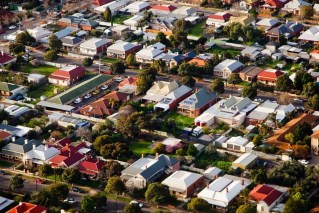The minimum wage will increase 8.6 per cent in July, with female workers to be the most affected as the Fair Work Commission (FWC) committed to focusing more on gender equality in future reviews.
This minimum wage hike amounts to a pay increase of $1.26 per hour, or $48 per week.
The national minimum wage applies to employees who are not covered by an award. On Friday, the FWC announced minimum award pay rates will also increase by 5.75 per cent from July 1.
This appears to be a middle ground between the 4 per cent wage increase backed by business and employer groups, and an increase of 7 per cent called for by unions.
In the announcement of its decision, the FWC noted the increases to modern award minimum wage rates will provide a disproportionate benefit to female workers, who represented 59.1 per cent of minimum wage workers in 2022.
FWC president Adam Hatcher SC said while the “scope and timing” of the 2022-23 review prevented gender equality being “addressed to finality”, the commission will soon commence a research project into the issue.
Eliza Littleton, Centre for Future Work senior economist, said the specific mention of how women are disproportionately affected by the minimum wage decision was “heartening”.
But she said the promise of more research doesn’t address the immediacy of the issues that women are facing.
“The issues for women in the workforce are structural … and there are a lot of policy solutions, including a boost to the award wages that can help close this gap,” she said.
“We know that women do 41 per cent more unpaid domestic and care work than men, and as a result of this, they tend to end up in low wage, part-time and casual work.
“One of the barriers to being able to rejoin and stay in the labour force for women is the cost of childcare.
“In Australia we have some of the most unaffordable childcare in the world, and providing free universal childcare in Australia would … go a long way in seeing … a more even distribution of women and men across the labour force.”
Boost welcome, but not enough
The FWC pointed out that the national minimum wage only applies to a very small proportion of Australia’s workforce.
Just 0.7 per cent of employees are paid the national minimum wage, while about 20.5 per cent of employees are paid in accordance with minimum award rates.
The boost to wages is still very important for these cohorts after years of falling real wages and a current inflation level of 6.8 per cent.
The FWC found the decline in real wages has significantly affected low-paid workers, resulting in a decline in living standards, financial pressure on households and, for some, an inability to meet basic budgetary needs.
Greg Jericho, Centre for Future Work policy director, said while the increases will allow minimum wage earners to “keep treading water”, the boost is not enough to help them get ahead.
“The Fair Work Commissioner noted that it will not maintain the real value of the modern award minimum wages, or reverse the reduction in the real value,” he said.
“And that certainly is true … At best, if we go by what the Reserve Bank are predicting inflation to be, this puts the value of the minimum wage back to about where it was in 2019.”
No evidence of wage-price spiral
The FWC found there was no evidence in Australia of a wage-price spiral.
With increases in award minimum wage rates only having a “modest impact” on the Wage Price Index via a contribution of 8.1 per cent, the FWC said the minimum wage hike is unlikely to spillover into pay set through enterprise agreements or individual negotiation.
Mr Jericho said that while some might look to the minimum wage as a bit of guidance for other wage decisions, it does not have a “one-for-one” correlation.
He also echoed the FWC’s position that the minimum wage hike won’t worsen Australia’s inflation problem.
“[The Centre for Future Work is] confident that this is [an] economically responsible [decision] in that there is no danger of this setting fire to wage growth or inflation,” he said.
“We would argue that if the Reserve Bank is to use this as an excuse for raising interest rates next week, then that is a very dangerous decision because in a sense, it is using the minimum wage to just hurt the economy even more.”
Polar reactions to wage hike
Following the announcement of the minimum wage increase, the Australian Chamber of Commerce and Industry, which had called for “restraint” ahead of the announcement, said the upcoming hike will burden small businesses and risk “deep and prolonged economic pain”.
“Businesses in the accommodation, food, construction, manufacturing, and retail sectors have experienced falling profits over the past two years,” ACCI chief executive Andrew McKellar said.
“The reality is many of the small and family firms in these industries will be unable to absorb this extra cost without raising prices.”
But Ms Littleton said profits are “overwhelmingly” driving high inflation.
“The response from the business community is expected and not surprising, but of course, they have a vested interest in maintaining their profit margins and they don’t want to give out more money to their workers because, obviously, that hurts their bottom line,” she said.
“What we should keep in mind is that people’s real wages are going backwards, they have less money to spend on more expensive things, and people are going without … necessities and essentials.”
The Australian Council of Trade Unions said with business posting record profits this year, they can afford the minimum wage hike, which will also encourage Australians to spend more.
“When workers have more money in their pockets, they spend it in local shops and cafes,” the ACTU said.
“This increase not only helps workers to pay their bills and put food on the table, it means they can support local businesses. This is good for the economy.”








